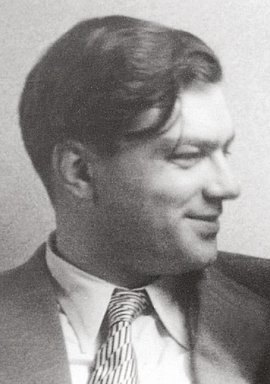Albert Suhr
Born in Hamburg in 1920, Albert Suhr became a pacifist at a young age and was therefore always extremely critical of National Socialism. This attitude was later reinforced when he attended lectures by the educationist Wilhelm Flitner. After completing school, Albert Suhr became part of a small discussion circle of regime opponents where questions of art and philosophy were discussed in a way no longer possible at the universities. Heinz Kucharski, Reinhold Meyer, and Margaretha Rothe were also members of this circle, which also read and discussed the works of banned authors. As a medical student, Suhr had contact to a group of doctors opposed to National Socialism that had been formed at the university hospital in Eppendorf, a district of Hamburg. In the spring of 1943 he obtained the third White Rose leaflet, retyped by his friend Hannelore Willbrandt, who worked in a bookshop. The Gestapo arrested Albert Suhr in September 1943, but he was not liberated from Stendal regional court prison until April 12, 1945. His friend Friedrich Geussenhainer, a doctor, was arrested in July of 1943, and died in a sub-camp of Mauthausen concentration camp in April 1945.
